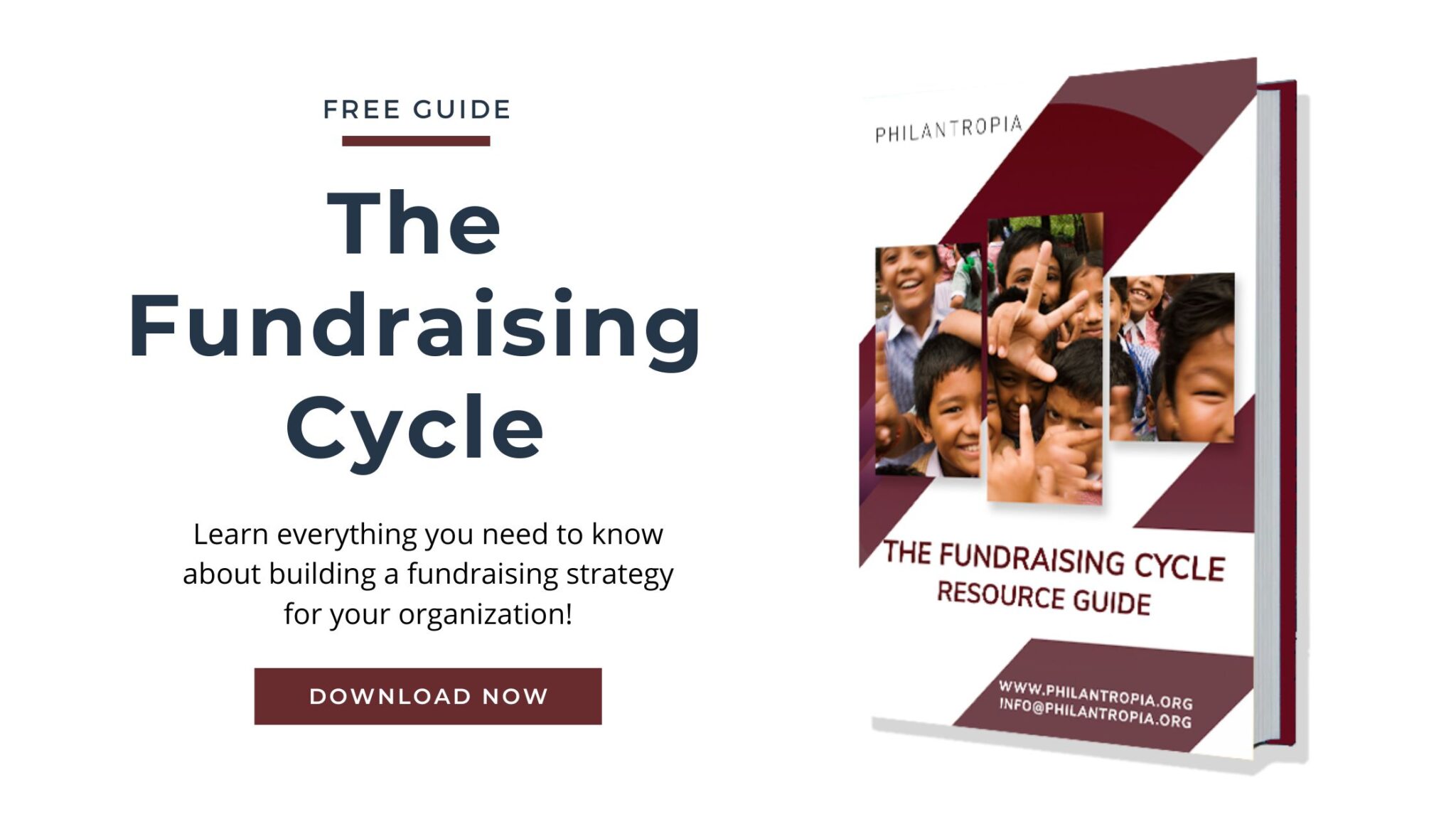Institutional donors encompass the hundreds of thousands of private foundations, public trusts, governmental donors, bilateral aid agencies, etc. that systemically give grants. Estimates show there are over 250,000 foundations and trusts in the world today.
In 2016, approximately $117 billion US dollars from private foundations in the United States and Europe went to charitable causes. Official Development Assistance (ODA) grants from governmental and multilateral donors totaled $137 billion. That’s a lot! And unlike individual and corporate donors, institutional donors often have a set budget they are required to give out in grants every year. This means that these institutions already have systems in place for giving grants, have grant-giving information available, and in many cases actively solicit grant applications.
Institutional donors are often very sophisticated. They tend to care less about emotional stories or PR value and more about the project specifics. They are often able to provide technical support to NGOs. However, they also may have strict requirements in written proposals, budgets, and reporting regulations. Winning a grant from an institutional donor can be an immense reputational boost to the receiving NGO. However, getting that grant is very time consuming and difficult. In addition to requiring a written proposal, these donors often conduct strict due diligence procedures before awarding funds.
Types of institutional donors
Private foundations and trusts
Philanthropic organizations are typically set up by wealthy families or individuals for the purpose of long-term charitable giving. Famous examples include the Ford Foundation, Gates Foundation, Wellcome Trust, Oak Foundation, Open Society Foundations, etc.
Government donors
Government agencies are among the largest providers of aid in the world. Official Development Assistance (ODA) is the catch-all term for foreign aid and development work abroad. Keep in mind though that the bulk of ODA numbers are grants or loans given directly to recipient governments. ODA providers may be sub-categorized as bilateral (i.e. DFID, SIDA) multilateral (i.e. World Bank, Asian Development Bank), and intergovernmental (i.e. European Commission, African Union) donors. Government grants and contracts tend to be very large and are becoming increasingly transparent. However, they are also often very technical with complex rules and guidelines.
Other non-governmental organizations
Some very large NGOs have their own grant programs, or may contract or sub-grant to local organizations. HIVOS, Rutgers WFP, Aga Khan Foundation, and The Asia Foundation are good examples of this. However, the majority of NGOs are not able to provide grants outside of their own programs. Still, partnering with other NGOs can have many other non-monetary benefits and are worth making the effort to network with.
Donor-advised funds
Individual donors may choose to give their money to a firm to make donations on their behalf. The reasons for this are different: amongst others, donors wish to remain anonymous, receive tax benefits, or have an expert select worthy charity. Sometimes donor-advised funds are also community foundations, which focus on making grants within one city or local region. Examples include Wellspring Advisors, The San Francisco Foundation, etc. Donor-advised funds and other new hybrid donors can greatly confuse NGOs. They are structured differently and may require more research or different approaches to be successful.
Corporate foundations
Some of the larger companies not only run CSR programs, but also run foundations separate from the company itself. Corporate foundations are typically funded by the company. However, they have their own boards and operate independently in most cases. This means these foundations tend to be a little less business-minded that internal CSR programs. Examples include the Coca-Cola Foundation, Ikea Foundation, MasterCard Foundation, etc.
Tips for Approaching Institutional Donors:
- Do your research! Just because a donor gives grants does not mean they will give a grant to you. Take the time to find a donor with matching interests.
- Be technical. Institutional donors are often field experts. They tend to be more influenced by impressive cost-to-beneficiary ratios than emotional appeals.
- Be patient. Institutional donors are often very bureaucratic, and funding decisions take time.
- Try, and try again. It is normal to fail. However, rejection is not always final, so make sure to always ask for feedback and follow up.





Hello
That was great introduction on how NGOs are going to be funded against humanitarian interventions
Dear Madame/Dear Sir My name is Madalin Morteanu and I’m the President of the Centre for Legal Studies and Human Rights, a non-governmental organization, based in Bucharest – Romania, wich advocate for the defence and respect of human rights, with focus on Roma/Gipsy minority rights. Our main objective is the fight against discrimination regarding Roma peoples in various areas of public life (for example: in the field of acces to quality education for Roma students, school segregation of Roma students, discrimination in the labour market, discrimination in housing, forced evictions, or acces to public health services). Also, we have an… Read more »
Hello Mardalin: Unfortunately, We are not a funding organization and do not provide grants. We are a social enterprise that provides a platform to connect you with expert advice on proposal writing to get your amazing projects funded.
Please check out the many resources available on our site to help you on creating a fundraising strategy.
Thank you!